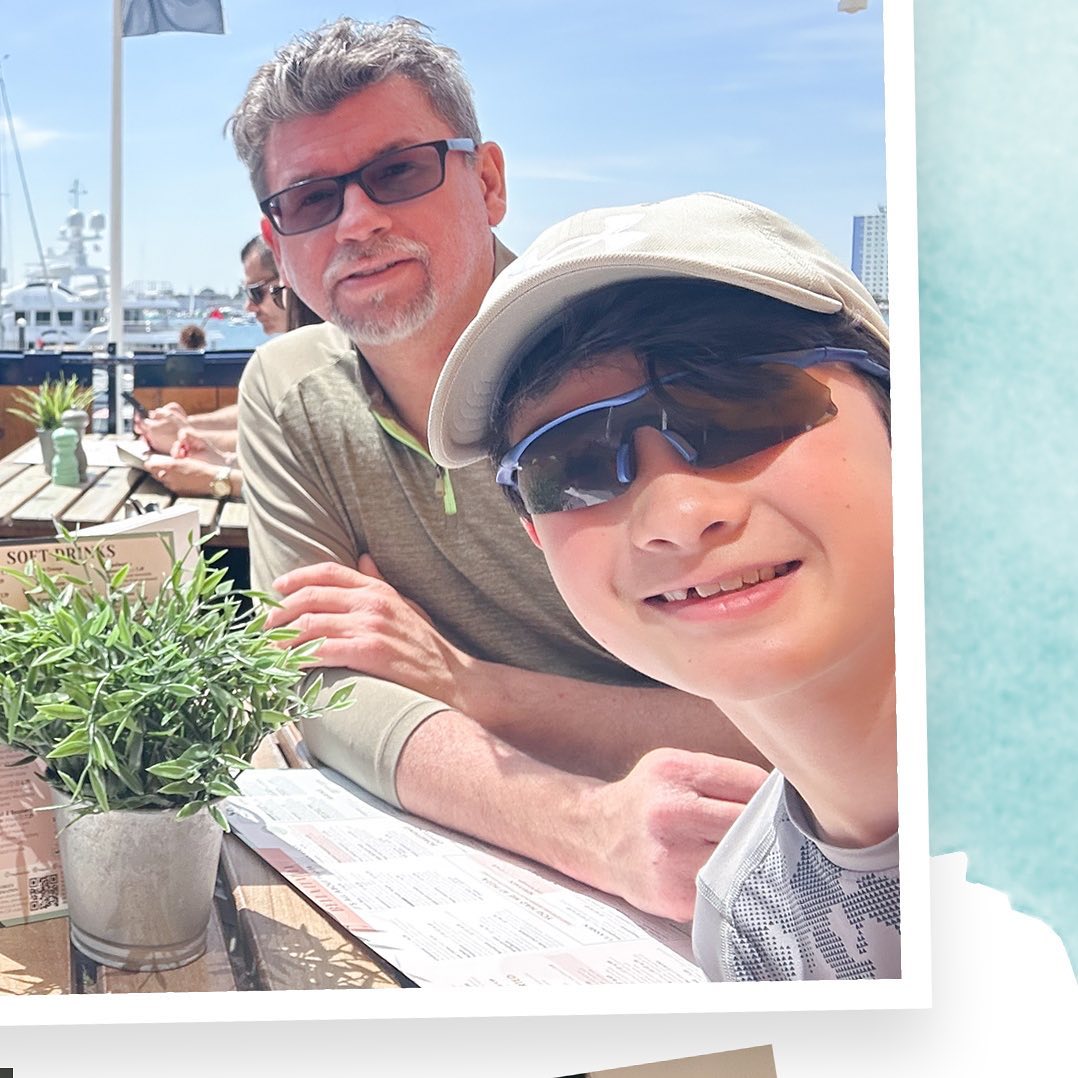How to be adventurous with food when you have a food allergy
When you’re allergic to tree nuts, fish, shellfish, milk, soybeans, or other foods, it’s a given that you are more conservative about what you eat than other people are. Not being careful about what you consume can result in unpleasant symptoms like hives, rashes, and swelling. If you have a severe food allergy and it triggers anaphylaxis, you may even be in danger of losing your life if you don’t receive medical intervention right away.
But allergies notwithstanding, is it possible to be more adventurous with the foods you try? For those who do enough preparation before they try anything new, the answer is yes. To illustrate, here are six tips to broaden your palate in spite of your food allergies or other strict dietary requirements. Use these tips to open your world up to new dishes and cuisines while protecting yourself from adverse health effects.

Get recommendations from your allergist and people who share your allergy
The best person to consult about foods you can and can’t eat is your allergist. But aside from giving you a list of foods that you need to avoid, your allergist may also be in a good position to recommend specific dishes, cuisines, restaurants, or brands that you can safely explore.
It’s also a good idea for you to reach out to people who share your food allergy, for example through online health forums. Ask them about their go-to brands for food items or if they have any good experiences with a local restaurant that you intend to try soon.

Look for new cuisines that prepare food according to your dietary requirements
It would also be wise to explore cuisines that, by default, may already accommodate your allergies and dietary needs. For example, if you have an allergy to fish or seafood products, you won’t go wrong with dishes from a vegetarian restaurant. Both the ingredients used and the method of preparation eliminate your risk of getting exposed to allergens. You can look for vegetarian recommendations that are also halal from sources like the Muslim Pro app or the Muslim Pro app Instagram account.
If you want to try a new cuisine but aren’t sure of which food establishments you can patronize, consider chain restaurants or food kiosks. They are often good places to buy food from because they standardise their food preparation protocols, including the ones that pertain to allergenic ingredients. In most instances, you can trust that they use the same ingredients and food prep techniques across all of their locations. Knowing that, try visiting the nearest branch of a chain that offers exciting new foods and get a tasty, non-allergenic morsel for yourself.

Look up new restaurants you want to try and contact their staff about your allergy
Nowadays, it’s quite easy to search for new restaurants online or through mobile apps. You can use these to look up restaurant menus in advance and to see if particular dishes are made with ingredients that you’re allergic to. For clarification on a dish’s ingredients, as well as whether the restaurant staff can omit or sub out certain ingredients with non-allergenic alternatives, contact them directly online or over the phone.
Take note that when you have a severe food allergy, it’s best to avoid certain types of restaurants because of the heightened risk of cross-contamination. These include establishments that serve their food buffet-style or those that sell dishes that are mostly premade. Go for restaurants that mostly make their dishes from scratch, as this means that they have greater control over the ingredients and preparation techniques that are involved in their food.
Dine out with a buddy
If you suffer from a food allergy, it’s always wise to bring a friend, family member, colleague, or romantic partner along when you want to try a new food establishment. It’s not just an issue of being able to enjoy your meal in someone else’s company. That person may also be able to help you administer first aid for an adverse reaction to food, and they can call for medical assistance for you if you’re incapacitated to do so.
In case they don’t already know about your allergies, fill them in on what foods you can’t eat and what they should do if you get a severe allergic reaction. Don’t forget to thank them for sharing a meal with you and looking out for your best interests.
Look for new allergy-friendly recipes online
Eating food from unfamiliar establishments may make you queasy about triggering your allergies, and that’s okay. It’s just as good an idea to eat at home and to prepare something new by yourself. In fact, it may be the safer option because it affords full visibility and control over what’s in your kitchen and how your food is prepared. That also means that you can ensure zero cross-contamination of your food with allergenic ingredients.
When you have the time, look for social media posts, blog entries, or video tutorials for new recipes that accommodate your allergy. You’re likely to come across some particularly interesting recommendations from people who share your allergy. Take their cue and add some yummy new dishes to your weekly home menu.
Make the necessary preparations before you try anything new
Lastly, before you try any new foods—be they from a restaurant, a food stall, or someone else’s home—make sure you’re adequately prepared to do so. Bring chef cards or allergy cards that you can hand out to food service staff whenever you eat out. In addition, keep an allergy first aid kit on your person and in your immediate vicinity. Ideally, your kit should contain an auto-injector for epinephrine, antihistamine pills, sanitiser wipes, and a list of close contacts that other people can call if you suddenly get an allergic reaction. Keep a kit in your bag, at home, in your car, and in your travel bag.
If there’s even a small chance that your food allergy could act up, it’s much better to be safe than sorry. You’ll also be able to enjoy your food more if you have full peace of mind about keeping your allergy situation in control.
Final words
Having a food allergy doesn’t mean that you should live in total fear of any new dishes and cuisines, or that you should deprive yourself of the pleasure that comes with a hearty, delicious, and nutritious meal. Follow the recommendations above to keep yourself safe from allergic reactions, but still free to be adventurous with your palate!
![[AD] We’re a cricket-mad family, so we’re buzzing that @thehundred is back this August! 🏏🔥
To get ready, M tried out the official FREE Activity Pack — and it’s brilliant! 🙌
Packed with fun games, creative challenges and sporty tasks, it’s perfect for getting kids hyped whether you’re at home or on the go.
👉Download yours now (link in bio)
@londonspirit @ovalinvincibles #EveryMomentCounts #TheHundred
#EnglandCricket #CricketFamily #TheHundredCricket #LondonBloggers #Cricket #CricketIsLife #kidsfun](https://suburban-mum.com/wp-content/uploads/2022/11/505472555_18531279601016840_7092520074819907569_n-180x320.jpg)



![[AD - Press visit]
We enjoyed the glorious sunshine this weekend with a trip to Brighton. We went on the @brightoni360official which is right by the sea front.
The i360 pod take a slow journey up, allowing you to take in views across Brighton and the South Downs 450ft above ground. There’s a bar inside with drinks and snacks available to purchase and the experience lasts 25 minutes.
Afterwards, we headed to the open air roller rink for a roller skating session!
The roller rink is:
⭐ Suitable for over 5s
⭐ £6.50 if you have your own skates or £9.50 if you need to hire them
⭐ 45 minutes per session
Full details to visit the i360 + skating
📍 Brighton i360, Lower Kings Road, Brighton BN1 2LN
🚗 Parking nearby (we parked in the Regency Square Car park)
🎟️ Prices start from £25.40 for an adult and £16.90 for a child
🕐 Opening hours are currently Sun-Fri 10.30am-18.30pm and until 19.30pm on Saturdays
☕️ Bar inside the i360, cafe and gift shop
Book tickets here:
https://tickets.brightoni360.co.uk/tickets/?_ga=2.195305772.1869001490.1689671753-1757164059.1689671753/#events?eventid=157](https://suburban-mum.com/wp-content/uploads/2015/04/417980235_313576471048632_3682382982231216432_n.jpg)

![[AD] ***Summer of fun at Barracudas Activity Camps!****
There is plenty for kids to do at @barracudas_activity_day_camps
From Tennis, Archery, Swimming, Motor Sports and more you can be sure that there will be something for kids aged 4.5-14. ⚽🏈🥅🎾🏓🏎️🏹🏊♂️🏉
You can book on a day by day basis - so it can fit in with any other days out/activities you have planned and there are early drop off and late pickup options available. Barracudas are also Ofsted registered so you can use your Childcare Vouchers too.
⭐⭐⭐Get £20 off a week or £4 off a day using my discount code: MARIA20⭐⭐⭐
#BarracudasActivityDayCamp #BarracudasActivityCamp #BarracudaAmbassadors #SummerHolidays #SchoolHolidays #Summer2023 #SummerCamp #DayCare #Camp #KidsCamp #surreymummy #surreymums #SummerOfFun #ActivityCamps #HolidayCamps #Childcare #SchoolHolidays #schoolholidaycamps](https://suburban-mum.com/wp-content/uploads/2024/07/353583570_625625966167953_545896259645102575_n.jpg)



![[AD] We have some super exciting news...we have been chosen to be Laser Quest Ambassadors, and the boys are over the moon!
We are really lucky that our local Laser Quest (@laserquestkingston) is just around the corner from us. It means we can pop in of a weekend or anytime during the school holidays, and with summer just around the corner, I know Laser Quest will be one of our go-to places for some family fun.
As well as games of Laser Quest, there are also VR experiences and arcade amusements too. To find out a bit more about how Laser Quest works, you can read my blog post: https://www.suburban-mum.com/laser-quest-kingston/ (clickable link in bio)
Don't forget to keep an eye out for our Laser Quest posts - I'm going to be giving away two family passes to use at Laserquest Kingston!
If you can't wait and want to head down to Laser Quest to try it out, use the code SUMMER30 for 30% off your booking. The code is valid from now until the end of August 2023 and can be used on Laser Quest games and birthday party bookings.
#LaserquestAmbassador #Laserquest #LaserquestKingston #ActivitiesForKids #FamilyFun #DaysOutWithKids #Lasertag #LaserquestVR #Kingston #ThingsToDoInKingston #SurreyFamilyDaysOut #ThingsToDoWithKids #RainyDayFun #SurreyMummy #SurreyLife #LifeWithKids #LifeWithBoys #familyfunday](https://suburban-mum.com/wp-content/uploads/2015/04/353230107_797358078406942_2405522556733455165_n.jpg)

![[AD] The sun has finally made an appearance and the boys have been making the most of it by spending it
in the garden.
They’re go-to is always football and they’ve been trying to improve their aim and accuracy with the new Messi Foldable Footlball goal from the #MessiTrainingSystem range.
I love the fact the goal is foldable, making it easy to store away when not in use. It is also lightweight so you can effortlessly pack it up and take it to the park or to a friend’s house.
The Messi Foldable Football Goal retails at £36 and can be purchased from @argos
You can read my full review here: https://www.suburban-mum.com/messi-foldable-football-goal/
#TrainLikeMessi #FoldableFootballGoal #FootballSkills #OutdoorFun #LionelMessi #LeoMessi #FootballAtHome #OutdoorKids #JustGetOutside #OutdoorsAndFree #ScreenFreeKids #WhateverTheWeatherKids @flair_gp](https://suburban-mum.com/wp-content/uploads/2024/07/341194882_615024710178056_41977149395989448_n.jpg)

![[AD] We are absolutely thrilled to announce that we are Barracuda Ambassadors again this year.
With Easter just around the corner, the boys were sent the @barracudas_activity_day_camps new camp kit in preparation for the school holidays.
There’s a wide range of activities for kids aged 4.5 - 14 including Tennis, Archery, Basketball, Arts & Crafts and more.
If you like the sound of Barracudas, find out more over on their website. You can also save £20 a week or £4 a day, using my discount code: MARIA20](https://suburban-mum.com/wp-content/uploads/2015/04/336812306_765234558514317_685553691647241974_n.jpg)


![[AD - Gifted]
Last weekend we were invited to try out @tsarettaspice’s new Bottomless Brunch menu and I can tell you it was thumbs up all round!
There’s a good choice tapas on offer from Punjabi fish fingers, Indo Chinese Chicken to Spiced Lamb Scotch Eggs and Manchurian Cauliflower (which was amazing!)
If you’re local to Twickenham and fancy giving them a try here’s are the details.
Tsaretta Spice Bottomless Brunch
⭐️£37.50 per head for bottomless Prosecco or cocktail of the day
⭐️£55 per head for bottomless Champagne
⭐️ Food included: 4 tapas selections and dessert or 2 tapas selections, a pav or naanwich and dessert
⭐️ Non-alcohol brunch is also available
Tsaretta Spice
55 Church Street
Twickenham
TW1 3NR
You can also read our full review over on the blog (link in bio)](https://suburban-mum.com/wp-content/uploads/2015/04/334565436_5960402314015030_663031098700829518_n.jpg)
![[AD] What does family look like for you?
I am fortunate to be surrounded by strong, powerful women in the form of my mum, sister and mother-in-law (along with many others). With Mother’s Day just around the corner, @BootsUK want to celebrate all the different mums and mother figures we are lucky enough to have in our lives. They have a huge range of Mother’s Day gifts to choose from so we can show them how much they mean to us. (swipe to take a look at some of my choices)
If you want to express love and appreciation for the mother figure(s) in your life, head to Boots.com to find the ideal gift. They have a whole host of gifts, so you can be sure to find something to suit all tastes. Celebrate the #LoveForAllMums this Mother’s Day with Boots.
](https://suburban-mum.com/wp-content/uploads/2024/07/334276459_136658625736352_6403224988403337253_n.jpg)




